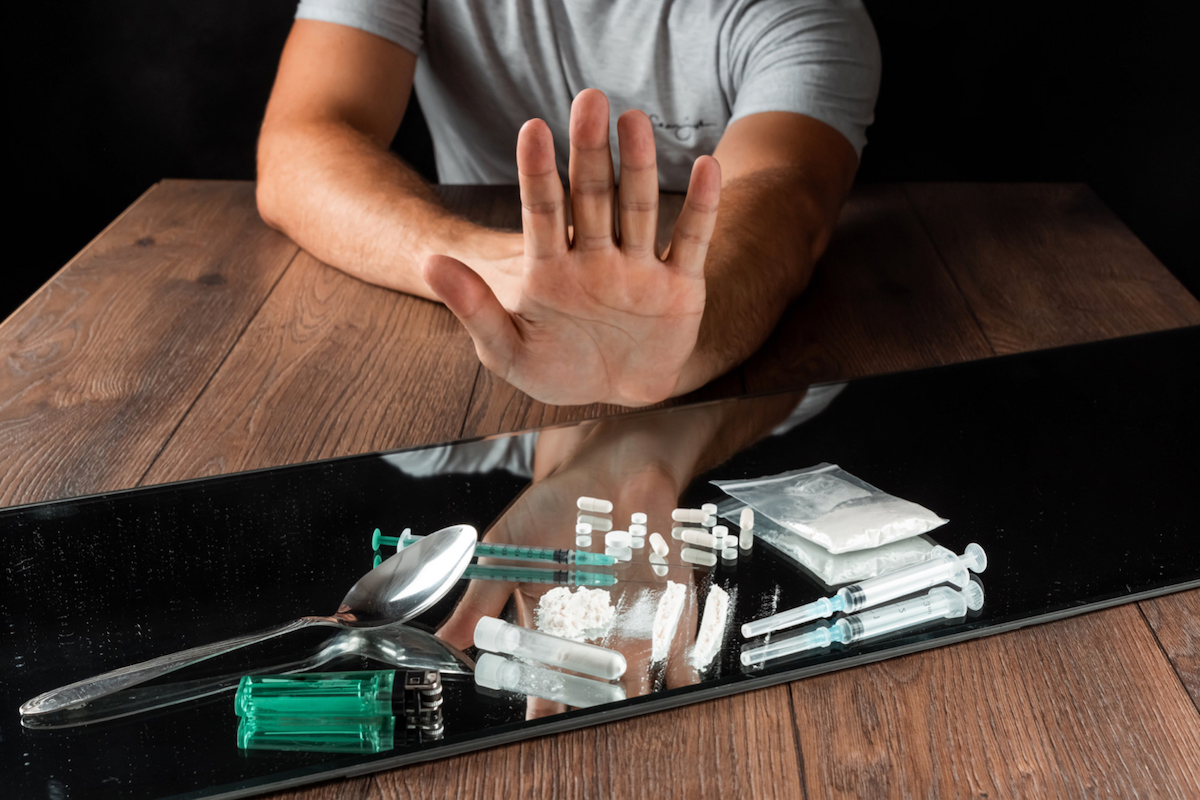Addictions have negative effect on our life, health and also relationships with close people. Although they might seem initially harmless, they start to affect us and take control of all aspects of our lives.
Drinking problem of an addicted person affects indirectly those close to them household members, close family and friends. Trying to help an addicted person we often suggest the idea of therapy. It is not always easy to encourage an addicted person to start therapy. In this article we suggest how to motivate the person who is close to us to seek treatment for addiction.
Let’s start from the beginning – what is an addiction?
Addiction can be easily missed if we do not closely observe an addicted person. This set of characteristic behaviours can be noticed most easily (but not always) by household members of the addicted person. Even though at the beginning they might seem relatively normal, with passing time they will intensify and make functioning of the addicted person and their family difficult.
From the definition of addiction:
Addiction – acquired mental or physical health disorder, manifesting by periodic or constant compulsion to carry out specific activity or taking psychoactive chemical substance.
Source: Wikipedia
Usually thinking about addictions alcohol, smoking or gambling come to our mind. However, it is worth realising that also other activities or substances can be cause of an addiction. The truth is we can get addicted to almost everything and there is fine line between a pleasure and a compulsion. At a certain moment you can notice that a person close to you loses their time and money to giving themselves totally to the addiction. It can have a negative impact on contacts with family which can get worse by day. No wonder question arises in your head – how to encourage an addicted person to addiction therapy?

How to encourage an addicted person to seek therapy – our answer
It is easier to prevent addictions than to treat them. Therefore, at the beginning when you notice worrying behaviour, signal the problem. You need to be prepared that this talk with the close person you suspect of addiction won’t be easy. The addicted person will deny the information we try to convey. Such talk should be carried out in a gentle manner and ideally when the addicted person is not under influence of addictive substances. Even though it is logical to you that you want to help to overcome an addiction, the addicted person will see it as an attempt to deprive them of a ‘pleasure’, therefore such talks won’t be easy. Starting the subject can lead to a quarrel. Taking control of the emotions is crucial but not easy, especially because such talk can make them angry.
You can prepare yourself for such a talk by co-operating with a therapist. Support from the specialist will be also invaluable to you, because living with the addicted person contributes to your problems and problems of your loved ones. How to encourage addicted person to therapy is a very individual issue and depends on the degree of addiction and the will of the addicted person.

How to encourage addicted person to treatment?
An honest talk is not always enough for the addicted person to start treatment. Being addicted means they do not see they have a problem and subsequently do not pay attention to rational arguments from the loved ones. In many cases they will make promises they will get better, which they won’t be able to keep.
Your support and motivation will also be needed to encourage the addicted person to start therapy. People with addictions are not consciousof their problem and do not control their behaviours, making impression they are in ‘trance’. An attempt to change their habits requires not only starting a therapy with the specialist, but also the support from the loved ones. It is worth remembering that the decision to start an addiction treatment requires willingness from the addicted person. Don’t have regrets if you don’t manage straight away to encourage the addicted person to seek therapy. It can be a long and monotonous process of fighting addiction.
In short – how to encourage anaddicted person to seek therapy?
- First: TALK – it is crucial that such a conversation takes place when the addicted person is sober and not under influence of substances.
- Use the help of a therapist, who will suggest how to start such a conversation with the addicted person. As a co-addicted person, you could also benefit from the help of a specialist.
- Try to support and motivate to go on therapy. Do not stop talking about the addiction problem when your loved one goes to their first therapy session. Treatment of an addiction is a lengthy process during which and after, the support of loved ones is invaluable.
- Do not give up if the first conversationdoesn’t bring any result. Wait for another opportunity and bring up the issue.
Jak dostać się do naszego Ośrodka?
Jeśli interesuje Cię nasza oferta lecznicza i diagnostyczna, zapraszamy do naszego Ośrodka IN-MED, jesteśmy na Bemowie, ulica Pełczyńskiego 5 lok 78 w Warszawie.

